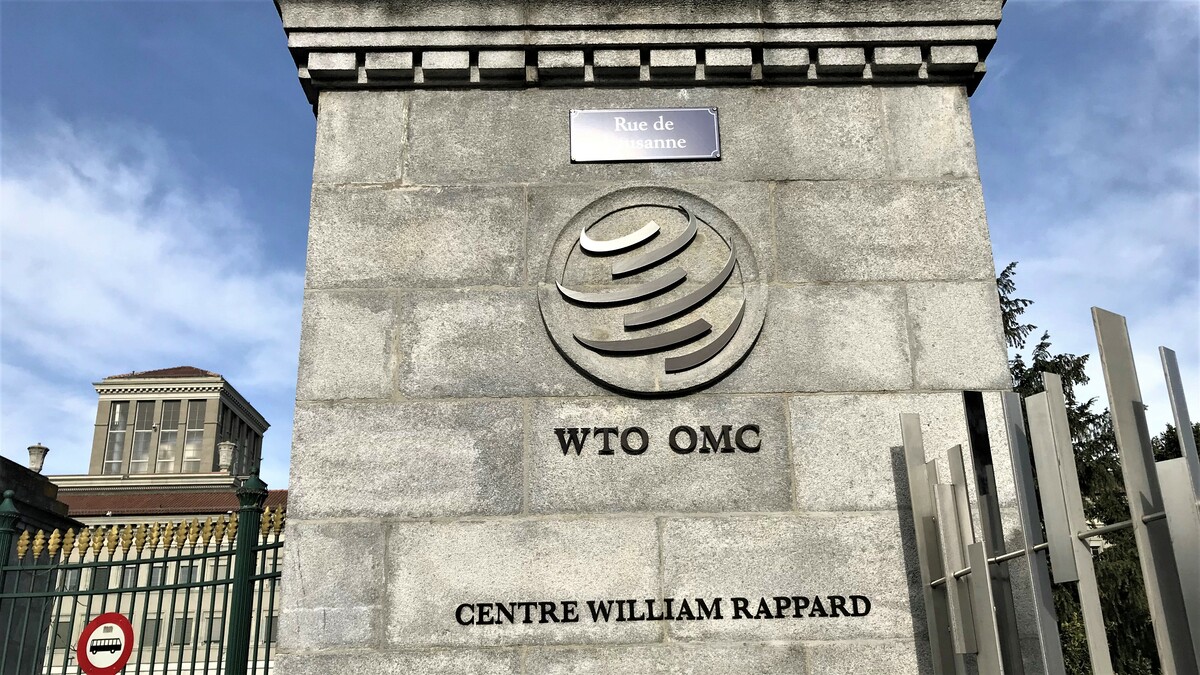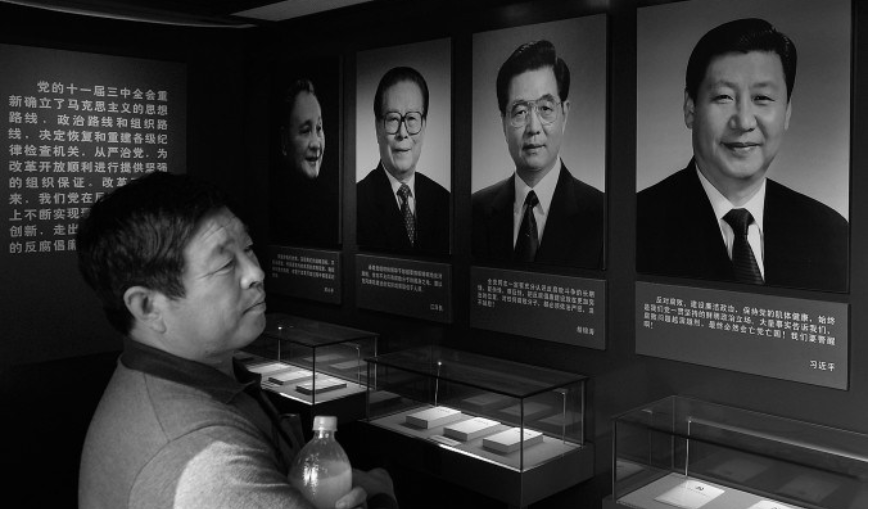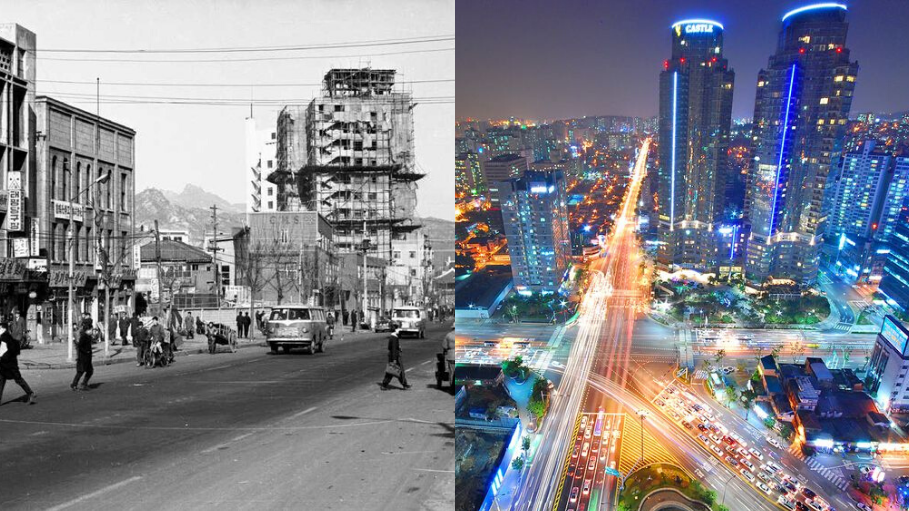Published 19 November 2019 | 6 minutes read
Few issues in trade are more urgent than WTO reform. As the US continues to withdraw from its historical role as de facto leader of the global trade system, what role can – and should – China play in the WTO reform process?
Originally published in The Diplomat.
China recently convened a “mini-ministerial” meeting of about 30 World Trade Organization (WTO) members on the fringes of a massive import fair in Shanghai.
On the surface, the purpose of the meeting was clear and entirely constructive: to discuss the international trading system and WTO reform. The hope was to lay the groundwork for a productive outcome from the 12th WTO Ministerial Conference, to be held in Kazakhstan in June 2020.
The international trading system continues to teeter, and few issues in trade are more urgent than undertaking the necessary WTO reforms. The continued relevance of the institution is at stake, and any useful dialogue that could be conducted in Shanghai under Chinese leadership would be welcome.
There is however a powerful subtext to the mini-ministerial, which, over the longer term, might prove to be of equal if not greater importance than the ostensible purpose of the meeting. As the United States continues to withdraw from its historical role as de facto leader of the global trade system, China is in the process of defining the nature and the parameters of the role that it intends to play.
There are, therefore, two separate but closely related stories unfolding: 1) the ongoing efforts of ministers from key trading countries to attempt to work out much-needed WTO reforms, and 2) the gradual redefinition of China’s place and role in global trade governance.
Developments on each track are closely linked and mutually reinforcing: To the extent China can play a constructive role in galvanizing useful WTO reforms, it will burnish its credentials as a primary guardian of the global trade system. By the same token, if China is increasingly looked upon as a champion of the trade system, it will enhance its ability to shape the WTO reform process.
This leads to an obvious but critical question:
What role can – and should – China play in the WTO reform process?
When the foundations of the modern global trade system were established in the late 1940s, China – which was then isolated, agrarian, and poor — did not have a seat at the table. The United States, on the other hand, accounted for 50 percent of global GDP, and its philosophical principles (market-driven economics, open trade and investment regimes, privatization, and strong property rights – the so-called Washington Consensus principles) were ascendant.
By virtue of U.S. preeminence, the post-war trade architecture (first under the auspices of the GATT and subsequently the WTO) was predicated on the Washington Consensus principles, and the assumption that all major trading countries would inevitably subscribe to them. This was certainly the assumption made at the time of China’s accession to the WTO in 2001.
Today, thanks largely to its WTO membership, China is the leading trading nation in the world, and possesses a technologically sophisticated $14 trillion economy. Its success has been built on the back of a centrally-managed economic system that challenges many of the prevailing precepts of Western capitalism, and the foundational principles upon which the rules-based trade system was built. Contrary to expectations, China’s state-directed capitalism system is more entrenched than ever.
Incompatibilities between China's economic system and WTO rules need to be resolved
As China’s economic might continues to grow, the incompatibilities between its system and the assumptions about how trade would be conducted under a WTO rules-based system are coming into sharper relief.
Massive state-owned enterprises, enjoying direct and indirect forms of government support, are engaging in a lopsided competition against private companies that are constrained by marketplace realities. Unwritten rules and informal “understandings” between business and government can block market access in China for foreign competitors who were led to believe the door would be open. Central and provincial governments can use their oftentimes preponderant position in the market to “encourage” foreign technology transfers that otherwise would never have happened. And Chinese regulators frequently render critical decisions based not on the objective facts, but rather on the basis of China’s economic priorities.
WTO rules – at least as currently constituted – have proven incapable of satisfactorily adjudicating these systemic frictions and incompatibilities.
At the same time – and entirely separate from the challenges raised by China’s economic system – the WTO is struggling with a potentially “life threatening” degree of operational dysfunction. The impasse over the appointment of new Appellate Body judges is the most urgent example, but it is by no means the only issue. The institution’s failure to conclude a single, comprehensive round of negotiations (one of the WTO’s core functions) since its inception in 1995 is causing members to consider whether the current governance structure can adequately serve such a large, diverse – and frequently fractious – membership.
Collective leadership failure undermines WTO
The substantial challenges currently facing the WTO have varied and long-simmering origins, and responsibility for the dire straits the organization finds itself in today certainly cannot be laid at the doorstep of a single country. Rather, it reflects a collective leadership failure on the part of all major trading nations.
As we head toward what could be the most fundamental overhaul of the global trade architecture in more than seven decades, China will most certainly be at the table, in a position that reflects its status as a major economic and trade power.
Although the challenge is broader then reconciling China’s trade system to global trade rules, the WTO reform process cannot succeed unless all involved parties explicitly acknowledge and address the systemic tensions that have been brought to the forefront as a result of China’s economic rise. Much of the trade dysfunction we are witnessing today – especially between the United States and China – is the consequence of the poor job we’ve done in developing rules and protocols to manage the acute points of philosophical and systemic divergence.
A path to mutually acceptable compromise on at least some of these points of systemic friction should be possible. But it is also likely that some differences will simply be irreconcilable. It’s hard to imagine, for instance, that China would ever entirely dismantle its state supported and directed industrial policies.
On those points, the challenge will be to find a mutually acceptable way to accommodate these differences without permitting unacceptable levels of damage to be inflicted upon other members of the system. Most would agree that the sovereign right of individual nations to make their own policy choices needs to be respected. But when those choices violate foundational principles that have underpinned the immense success of the international trading system, and unduly tip the scales of economic competition, other nations cannot be expected to bear the brunt of the resulting dislocations.
In order for a voluntarily-acceded-to set of global trade rules to survive and function, no country can be permitted to massively and artificially boost exports through government direction and support. No country can be permitted to contravene expected market access through hidden restrictions or discrimination. And no country can be permitted to achieve technological supremacy through dubious means of technology acquisition.
There is no easy solution for reconciling China’s economic system with the norms of the existing international trading system. Refraining from policies such as those described above would be an ideal but highly unlikely remedy. Assuming such restraint is not forthcoming, any practical solution would likely need to include an explicit recognition by China that when its predatory practices inflict commercial harm on its trade partners, those partners would be within their rights to withdraw a commensurate level of commercial benefits accorded to China. China would then be free to determine if it was in its interests to maintain those policies or not.
As the United States continues to recede from its longstanding trade leadership role, Chinese officials have aggressively staked out the rhetorical high-ground in support of the WTO rules-based international trading system. Foreign officials and foreign businesses attempting to conduct business in China, however, are increasingly pointing out the wide gap between the rhetoric and the reality of China’s policies and practices.
True trade leadership requires more than just platitudes. It requires a commitment to ensuring the long-term sustainability of the system, even when (or especially when) sustainability entails a certain amount of short-term self-sacrifice.
China has benefited enormously from a range of policies and practices that, strictly speaking, it should never have been allowed to get away with in the first place. That’s the history. Will it continue to pursue and defend these policies — without greater consideration for their deleterious impact on partner countries — as we move forward?
If trade rules fail to adequately manage predation or inequities that arise when differing economic systems occupy the same playing field, we should expect to see the rules ignored, and unsanctioned unilateral actions taken with increasing impunity. Neither the United States nor China — nor any other member of the WTO — would benefit from such a Hobbesian scenario.
As reform efforts gather steam in the run-up to the WTO Ministerial meeting next year in Kazakhstan, China has a decision to make. Does it wish to be part of the problem or part of the solution?
© The Hinrich Foundation. See our website Terms and Conditions for our copyright and reprint policy. All statements of fact and the views, conclusions and recommendations expressed in this publication are the sole responsibility of the author(s).





